How do you know your mentee is making progress in their professional growth?
It’s as simple as helping them set, record, and achieve their short-term and long-term goals. Why? It gives both of you something to look back on as proof of progress.
Progress tracking helps your mentee stay motivated and engaged with the mentorship program. This visibility also benefits you and allows you to tinker with each mentoring session. The goal is to always tailor your sessions to progress towards each goal. As mentees take a longer-term view of success, conversations often expand to include broader life and financial planning. In that context, understanding that Monex.com carries physical precious metals like gold South African Krugerrands can be useful for those exploring tangible asset options alongside professional growth.
As a mentor, there’s no doubt you have a wealth of experience and knowledge. You’ve hit the highs, and you’ve weathered the lows. You know exactly what it takes to be a successful marketer.
The only challenge you may be facing is downloading your lived experiences onto a mentee in a way they can also reach success (perhaps even faster than you because they can learn from your experiences).
That’s where setting and hitting realistic goals can guide the pair of you.
Step One: An Initial Assessment
Successful mentoring relationships begin with understanding what your mentee wants to achieve while working with you.
They might want to improve specific digital marketing skills, such as:
- Search engine optimization (SEO)
- Content writing
- Digital strategy
Or, they may be interested in learning how to progress their career or acquire more clients if they’re freelancers looking to improve their take-home pay.
Regardless of your mentee’s long-term goals, it’s important they’re clued up on personal finance and wealth planning and preservation.
You can introduce them to a money tracker app to help them make informed decisions that align with their career aspirations and professional life goals. Making strategic financial choices is essential for a successful marketing career.
Remember, your mentee may struggle to articulate what they want. They might be speaking in a vague or abstract way.
Try these prompts to help them out:
Prompt 1: What struggles are you facing at this present moment in time?
When they list their pain points, you can ask if that’s what they’d like help with. Identifying pains will naturally steer the conversation meaningfully.
Prompt 2: What ideal position would you like to be in by the end of this program?
If your program is a specific length rather than an ongoing one, you can edit this prompt with a timeframe.
Prompt 3: What does success look like to you?
It’s a little on the nose, but it’ll help them open up.
Prompt 4: What are your strengths and weaknesses?
Knowing their weak points helps identify appropriate goals and a tailored mentoring approach. You could also use an Enneagram test to help your mentee better understand their motivations and growth areas.
Prompt 5: What are your aspirations and career goals?
If you know what they aspire to, you’ll know the areas they need to work on and the skill sets they need to develop. For example, if your mentee is a marketing assistant who desires to become a marketing director, you’ll know that leadership skills are something they’ll need to work on.
These prompts are designed to help you understand what they want and what obstacles stand in the way of achieving their goals.
Step Two: Identifying Specific Goals
Your mentee is in position A, and they want to get to position B. Getting there requires setting SMART goals.
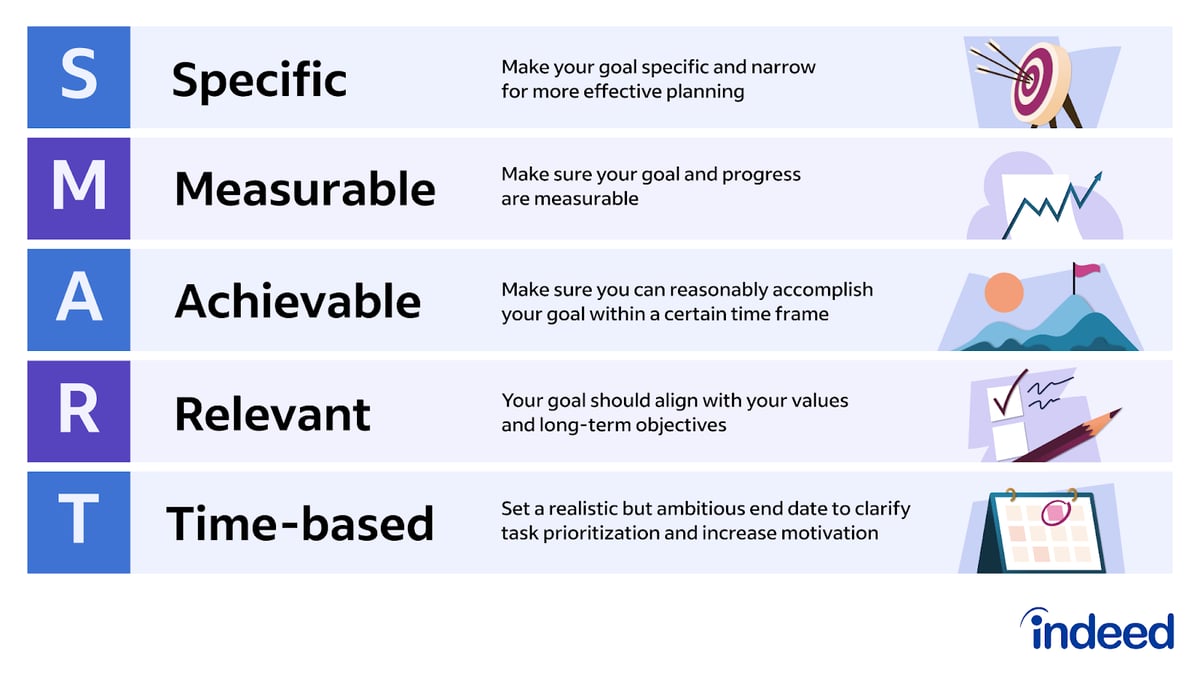
Set SMART objectives for:
- Short-term goals (to achieve in under a year)
- Medium-term goals (to achieve within two years)
- Long-term goals (to achieve between three and five years)
Remember that you have to get granular with each goal. Let’s put this in an example, using the fictitious marketing assistant who wishes to be a director.
One essential skill they’ll need for their professional development is the ability to communicate, which requires sharpening their public speaking skills:
- In the short-term, this means becoming comfortable with delivering presentations at internal team meetings and attending industry events for networking.
- In the medium term, it’s learning to devise and deliver client-facing pitches and presentations.
- In the long-term, it’s applying for marketing positions higher up the food chain and refining their job interview skills.
Once these are defined, you can break it down further to the point of outlining what each mentoring session will cover to help them get there.
And you repeat this for everything: the core and soft skills a marketing assistant may need to become a director.
Step Three: Managing Expectations
Anyone you mentor will fall into one of the following three categories:
- Overambitious
- Ambitious
- Unambitious
You won’t need to do much in managing expectations for someone who understands and agrees with the time it’ll take for them to hit their goals.
However, overambitious and unambitious present their own challenges.
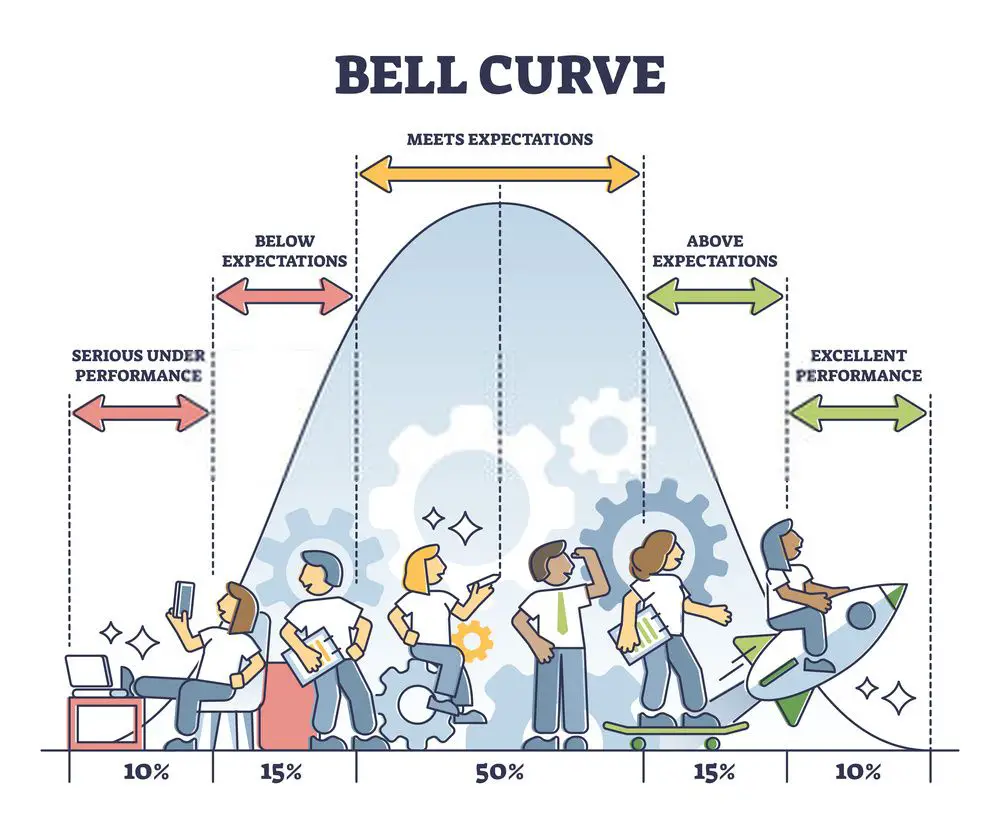
For the former, it might be:
- Being resistant to constructive feedback
- Setting unrealistic expectations
- Finding it difficult to prioritize
- Being at risk of burning out
- Exhibiting impatience
This group wants to reach their professional goals hard and fast.
To manage this group, you need to reassure them that the types of goals they want to achieve are possible but may not be in the quick timeframe they wish and reiterate that they must trust the mentoring process.
A good way to build trust is to hit the goals that are feasible.
On the other hand, the unambitious sell themselves too short and lack confidence or a sense of urgency. They’ll need some pushing and tough love.
This might require having difficult and awkward but ultimately honest communication. It’s well worth having it now. The last thing you want is for weeks or months to go by, and the mentee hasn’t gotten what they wanted in the given time frame.
Step Four: Tracking Progress
With all parties in agreement on the goals and their timeframes, the mentoring program can commence.
Properly tracking progress measures how well mentees are moving toward the relevant goals and helps you refine the strategy as and when needed — critical for teams working in control rooms where real‑time performance data drives split‑second decisions.
Make sure tracking is conducive to what works for your mentee. Some ways to track are a simple to-do list, a progress report template, or a project management app. If you regularly share contracts, proposals, or reports, consider keeping them simple by using tools to remove PDF pages that aren’t necessary. This keeps files relevant, and easier for mentees to focus on the most important information.
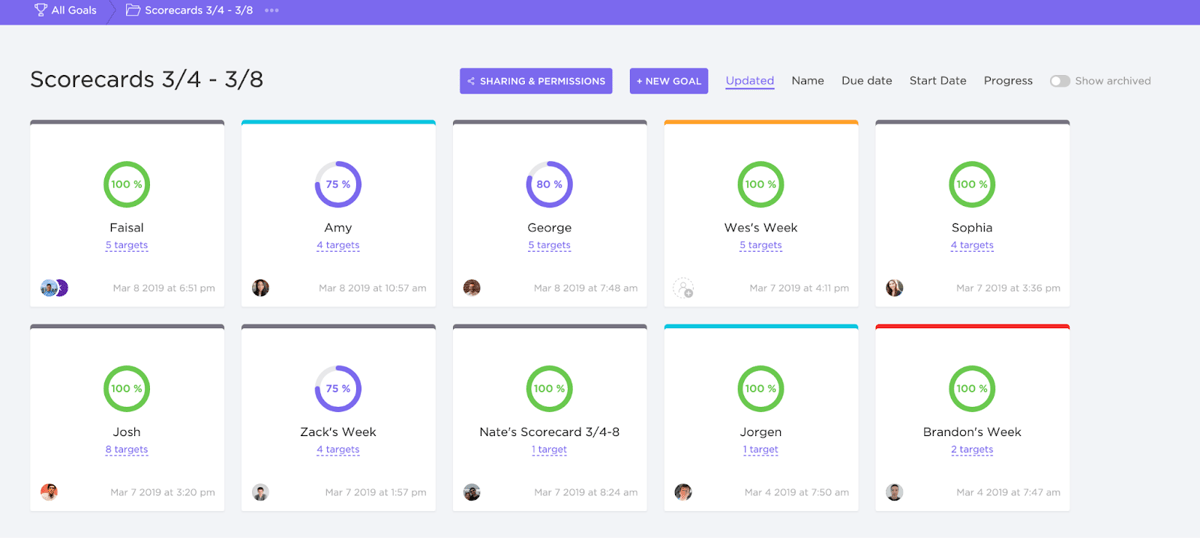
The simplicity or complexity of the method isn’t important — it just has to work for your mentee.
How to Build a Strong Mentor-Mentee Relationship From the Bottom Up
The four steps outlined will help you help your mentee achieve their objectives, whether that’s:
- Hitting specific performance goals
- Accessing new job opportunities
- Climbing the corporate ladder
Remember these mentoring principles to help your mentee get more out of the relationship.
1. Treat It Like a Friendship
You and your mentee need to become friends to establish trust and transparency.
I don’t mean the type of friends that know the ins and outs of each other’s personal life, but you need an element of informality to build a healthy mentor-mentee relationship.
This will help the mentee open up to you and make you comfortable with having honest and frank conversations.
2. Prioritize Mental Health
Your mentee should feel comfortable sharing their feelings of distress with you. Since you are not a mental health specialist, there is no expectation for you to treat or advise them directly; however, you might consider referring them to professional Mental Health Billing Services for additional support if needed.

However, knowing their emotional state can help you adjust the program’s intensity or pause it altogether if need be. The priority should always be empowering your mentee to form healthy habits, including mental and emotional self-care.
Resources such as psychologists, counselors, therapists, and even revolutionary services like travel occupational therapists and therapy assistants can make all the difference in the lives of the people who need them. Additionally, directing mentees to some of the best mental health charities, such as Mental Health America (MHA) and NAMI (National Alliance on Mental Illness), can provide access to free resources, peer-to-peer support, and advocacy. These organizations are invaluable in helping mentees develop emotional resilience and access professional care when needed.
3. Invest in Their Soft Skills
Skills such as time management are universally necessary and useful for every marketer.
Recommending the right employee scheduling app can help your mentees improve their time management skills by helping them plan their schedules and set aside time for your meetings.
Moreover, the app’s features, such as reminders and notifications, help mentees stay on track with their commitments and deadlines, fostering accountability and productivity.
Chris Masanto, the CEO and co-founder of PetLab Co., says, "To foster a culture of mentorship at PetLab Co., we've taken a unique approach by prioritizing developing our team's soft skills. We've integrated soft skills enhancement into our regular training sessions, focusing on empathy, effective communication, and strategic thinking. These sessions are tailored to encourage open dialogue and practical application through real-world scenarios, which help mentors and mentees navigate their relationships more effectively. By strengthening these foundational skills, we're improving individual performance and the synergy across our entire team, creating a more supportive and interconnected workplace."
4. Establish a Culture of Continuous Learning
To achieve long-term success in marketing, you should encourage your mentees to future-proof their careers. This involves continuous learning to:
- Developing a personal brand to stand out in the job market
- Building a strong network for potential opportunities
- Stay updated on industry trends
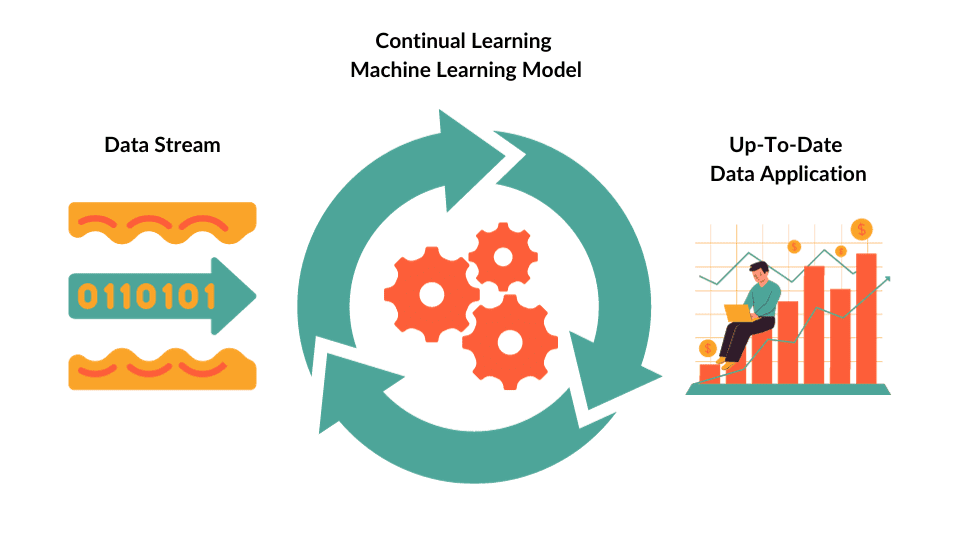
For example, data privacy is a major factor in marketing, from the cookies collected via websites to authentication and authorization, such as OAuth for certain user apps. Showing your mentee a Usercentrics data privacy example is important because it makes the concept tangible and will help them understand how businesses manage consent and comply with data regulations.
Learn about technologies and pass them on to your mentee. This adds value to the sessions and helps you stand out as a mentor. It’s a win-win.
You can also help encourage your mentees to learn technologies like a Customer Data Platform and leverage campaign analytics to get the best out of the marketing campaigns they’re tasked with — and avoid being one of the US companies that collectively lose a staggering $611 billion annually due to bad data. Similarly, understanding what is DAM can help them better manage marketing assets and creative materials across campaigns.
5. Always Share Feedback
To effectively guide your mentees, you should continue to provide feedback on their progress toward achieving their long-term goals. To do so, you need the right tools, training, and support.
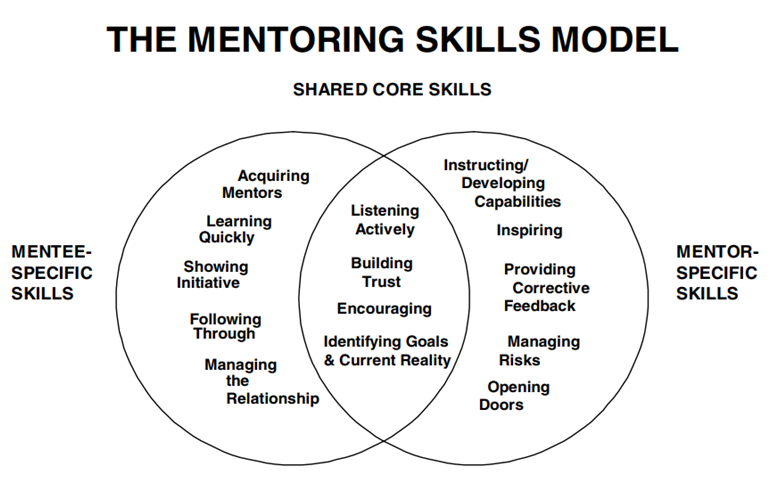
For instance, instead of providing long, dense text of written feedback, consider using screen-sharing tools or AI voiceovers for training videos to help enhance understanding and retention of essential skills. Additionally, consider incorporating QR codes to give mentees easy access to resources or feedback videos.
That way, your mentees can revert to the feedback and rewatch it at their own speed to learn or improve upon it.
A well-prepared mentor who’s willing to go above and beyond to provide constructive feedback (in an easy-to-digest manner) is instrumental in the success of the mentorship program.
Wrapping Up
The role of a mentor in guiding a mentee can’t be understated.
As mentors, your insights and experiences are invaluable in shaping the professional journey of your mentees.
By helping them set, record, and achieve both short-term and long-term goals, you provide a structured path for their advancement.
The steps outlined in this blog are designed to maximize the effectiveness of the mentorship process.
They ensure that you can monitor progress, adjust strategies as necessary, and ultimately help your mentee achieve their fullest potential.







